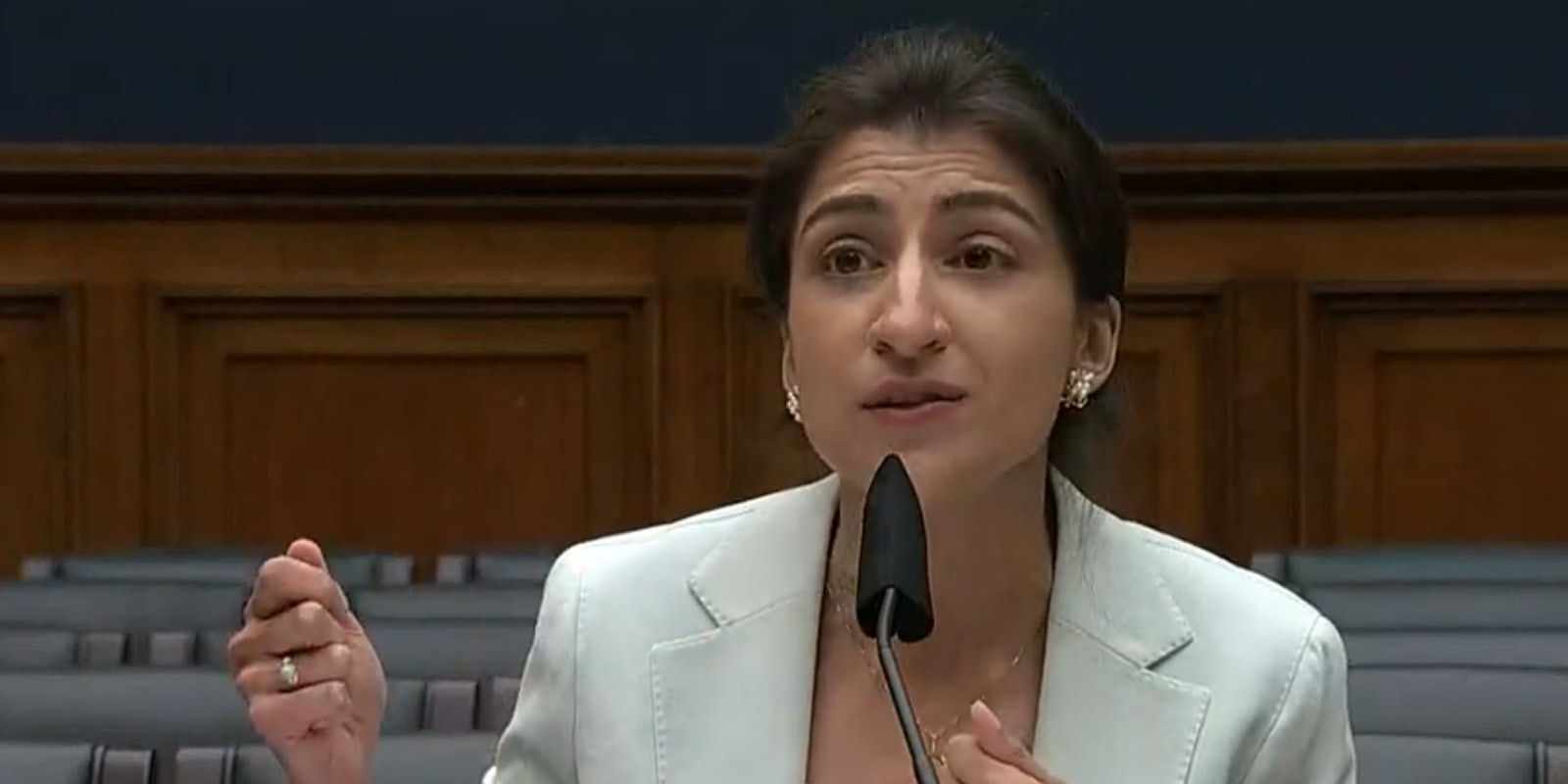Today in Tech is a weekly column that unpacks the internet rights and big tech news that are emerging on the popular platform and runs on Saturdays in the Daily Dot’s web_crawlr newsletter. If you want to get this column a day before we publish it, subscribe to web_crawlr, where you’ll get the daily scoop of internet culture delivered straight to your inbox.
Analysis
Federal Trade Commission (FTC) Chair Lina Khan warned earlier this week that artificial intelligence tools can “turbocharge” fraud and discrimination.
Khan made the remarks as part of a joint statement from the U.S. Department of Justice, Consumer Financial Protection Bureau, and the U.S. Equal Employment Opportunity Commission about “enforcement efforts to protect the public from bias in automated systems and artificial intelligence.”
The statement from the agencies comes as there has been an explosion of various AI tools that have become available from chatbots like ChatGPT,art-generating bots like DALL-E, and much more.
The FTC posted guidance to AI firms earlier this year warning them that they needed to “keep your AI claims in check” when marketing to consumers and in 2021 warned about how it could enforce laws if AI tools were discriminatory.
Khan made that same message clear in the statement issued earlier this week.
“We already see how AI tools can turbocharge fraud and automate discrimination, and we won’t hesitate to use the full scope of our legal authorities to protect Americans from these threats,” Khan said in a statement. “Technological advances can deliver critical innovation—but claims of innovation must not be cover for lawbreaking. There is no AI exemption to the laws on the books, and the FTC will vigorously enforce the law to combat unfair or deceptive practices or unfair methods of competition.”
Why it matters
It seems like everyday there is a new story about AI—from tools like ChatGPT, to AI being used to make phone scams seem more real.
Even numerous tech titans have called for a pause in AI development over fears that the technology could pose “profound risks to society and humanity.”
Given the pervasiveness of the technology, the FTC and other government agencies warning about how they “vigorously enforce” laws to crack down on harmful business practices or discrimination that involves AI is a good thing.


